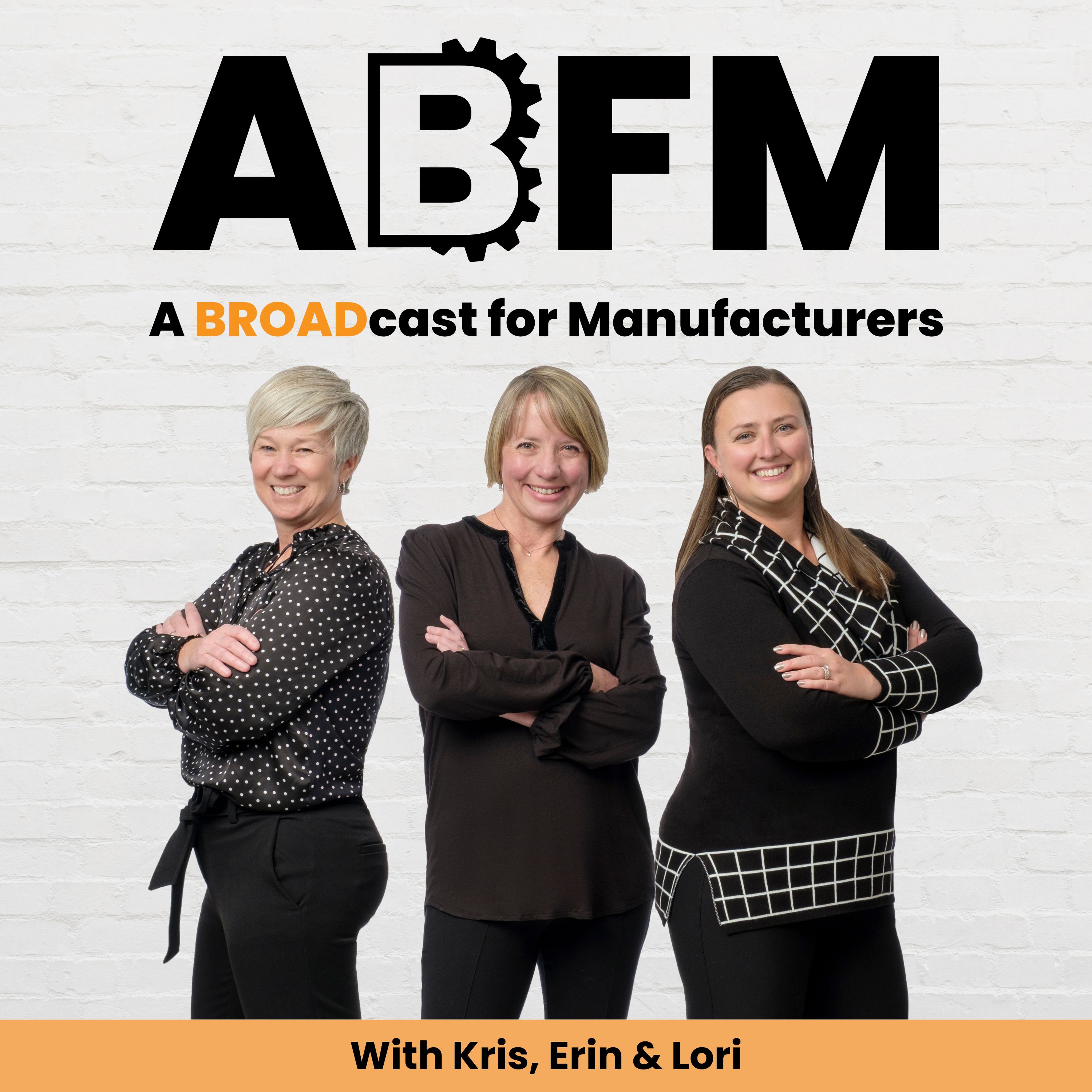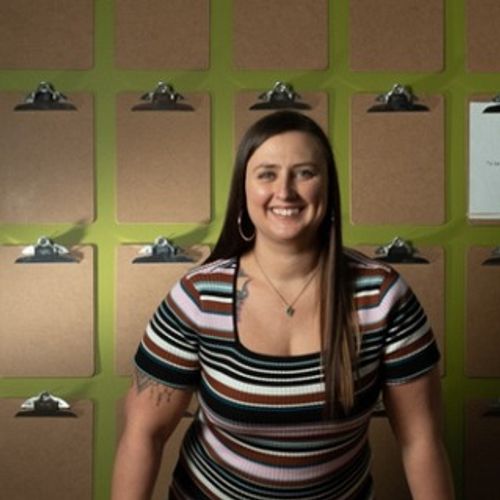Episode 3
03: Digital Transformation In The Manufacturing Industry
Kris: As a former leader in a global manufacturing organization responsible for growing equipment and aftermarket sales, and now a leader of a digital eCommerce company, I am often reminded how much things have changed in just the past twenty years. I mean, I can remember when I was so excited to get a Blackberry phone (remember those?) so that when I was traveling to remote mining areas and arrived at my hotel, I wouldn’t have to hook up my laptop to the dial-up hotel internet connection just to check my emails to make sure I didn’t miss anything important before going in to visit my customer the next day. It was so much faster to check them from my Blackberry, and for me, this was roughly 2007.
Fast forward to today, now if a manufacturer were to roll out an eCommerce solution like Equip, if I were still that same sales leader visiting my customer, I would be able to stand next to their machine in the pit and pull up full product bills of materials, identify the products from a 3D interactive drawing, add them to a shopping cart and send them a quotation all from a smartphone or tablet. The customer experience opportunities are incredibly different today for those manufacturers who are ready to make the leap into digital self-service. And this is just one example of the type of digital services available. This takes us to today’s topic - Manufacturing and Digital Transformation where we’re going to talk about manufacturers and their journey toward digital transformation.
Kris: Let’s get into it. To set the stage, Erin and Lori, I would like to hear how each of you define digital transformation for the manufacturing industry?
Erin: One thing it always goes back to his business goals. Your business goals should define your approach to digital transformation. In manufacturing, I see a couple of things that define digital transformation. The first is digital transformation as cultural transformation. So opening the business culture to digital tools, be in sales, operations production is a cultural change. And so the digital transformation has an impact on everyone, and how they identify as part of the organization. The next component of digital transformation is maintenance or growth strategy for your business. So tools like eCommerce, ERP, automation are becoming sort of the oxygen of all businesses, and manufacturing is no different. So to breathe, to grow, it can't be ignored, digital transformation is going to be foundational.
Lori: I resonate with everything you said, and especially the cultural component because regardless of any transformation that you are incorporating into your business, you've got to get everyone on board and it's sometimes very challenging to do that if this is the way we've always been doing it for the last 40 years and you're trying to teach an old dog new tricks. I like to compare it to what manufacturing has been doing already with regards to automation, robotics, and creating efficiencies in their business, I think it's no different when you're looking at other segments of the business such as marketing, sales, and the communications and that relationship and that nurturing and it's just taking that transformation or that evolution of what's happening, and applying it to different segments of the business. You mentioned ERP systems, which are taking all elements of your business and combining them into one extremely useful digital tool and resource. But the critical component of that is the adoption of getting all components together and then getting all of the business on board with how to use that component. If you're looking at marketing automation, you need the sales and the marketing team working together on the same page and it's all about maximizing the relationships. COVID taught us real quickly that you can have relationships that aren't in person shaking hands, and that you can still nurture and create new connections.
Kris: I know there have been numerous articles written about this, but I am curious, based on each of your experiences, what do you think are the three most important reasons why manufacturers need to be prioritizing digital transformation?
Lori: It's hard to pick only three. I'll start with something that carries over from the last question, which is that efficiencies are there. Just like in the machines and the equipment at the plants, there are efficiencies in leveraging the digital tools and resources out there. We're all in that marketing and sales side of things, but we really focus on maximizing and shortening that lifecycle and making it easier to have those conversations with your clients or your potential clients. The second one, I would say is this next generation, the current generation is online. That's where your next client is hanging out. They're not going to answer the phone, they're not always going to show up at a trade show because I think trade shows are more of that nurturing opportunity. Using SEO making sure your websites getting found online, leveraging social media to tell your brand story, and creating efficiencies around that is going to help you to continue to find that next client. The third thing that I think is the most important actually out of all these three, is what your customers are expecting. They're expecting to have a conversation on your website using a chat feature, they're expecting to log in to place an order online and just repeat that order and not have to have a conversation or get an instant quote, or whatever it is. If your customers are expecting this, you have to make this transformation.
Erin: My response to three reasons that digital transformation is more of a big picture kind of thought. First is attracting and retaining a workforce. Younger generations, like Lori, pointed out, expect and anticipate a digital forward work environment. If you can't provide that, that's not going to be appealing to younger people. We all have heard about how workforce attraction and retention is a big issue in manufacturing so digital transformation, not only for the functional parts but going back to that cultural idea, demonstrating that your digital forward as a company or as an organization. Next is modernization. I mean, we don't leave our baskets anymore. We're not horse-drawn carriages, we're digital so it's time to get there. Then the last one, I think this is not spoken about enough, is pleasure and freedom. I just was in a webinar the other day which talked about the future and technology and what it can do for us. If we can lean more heavily on digital tools to do sort of the mundane things for us, it can open up all these possibilities of creativity, of moving ahead, of offering us time to do the things that we really love and care about, and value. If we're going to get there, that means we all have to participate and contribute to digital transformation, not just wait for it to happen, because then that's something that's happening to us, not something that's happening with us.
Kris: The world is a bit of a crazy place right now, what do you think are some of the biggest challenges manufacturers are facing today that may be preventing them from moving forward with their digital journey?
Erin: This is where I may get a little controversial. I think one of the biggest challenges is rigid industry leadership that is not helping lead us into the next era with digital transformation. I see people like Matt Goose and Eddie Saunders doing much of the heavy lifting. These are folks that are getting young kids excited about manufacturing by meeting them where they are and they are doing that heavy lifting. I'd like to see more of that from industry leadership. So it's a little bit of a prescription and also a diagnosis mixed in together.
Lori: Erin, I just have to say that I love your perspective. My answer is from a bit different perspective in that I think part of the challenge is that to some extent, it's cluttered. There's a lot of information coming from a lot of different directions and you don't know where to start. I think there's also this fear of the unknown because it can be a big investment. I know that these manufacturing organizations, when they invest in a new piece of machinery, they have so much confidence that it's going to produce a certain volume of new business for them, and they can get so much work done. But when they're making this investment into this unknown territory, where they don't have their historical references for themselves to have confidence on how it's going to improve their business, they're really just trusting kind of someone else's opinions, but there are opinions on all different spectrums and there are all different ways to tackle this. So I think that's where there's a lot of hesitation and reservation to move forward.
Kris: If you could offer one piece of advice on how digital can help solve the challenges preventing companies from moving forward, what would it be?
Lori: To solve the problem based on how I answered the last question, I would say manufacturers need to start having the conversations with those that are doing it right now and start asking some intelligent questions to build their confidence and really just get that conversation going, which is what we're doing right now. They have to have true curiosity into this topic in order to have any movement going forward and helping them solve some of these bigger issues where digital can do so much and solve so many problems. Yeah, it is a time and financial investment on the front end, but the long end return significantly outweighs any current hurdles that someone may be having right now. So my very simple answer is to start talking about it and start asking questions.
Erin: A challenge that keeps folks from moving forward and I think I'm going to name that challenge as thinking that you're locked in a rigid mindset. Whether that's before you get started with the technology, or you might even be mid-technology and so that brings to mind this example of somebody that we worked with. They had a transportation management system platform that they were using and it just kept not being the right solution for them. Over and over again, they were running into roadblocks and barriers and they asked us how we could help them. We suggested to them that they should make their own because it could fit their needs and might even save them money. They decided to try it and not only did they save money, but they also ended up making six figures from that platform, because they were able to then sort of rent it out to some other folks as well. So just knowing that one of the great things about digital transformation is flexibility is the ability to name your own solution. It can be daunting, I totally get it, but if you keep that in mind, that you should ask for what you want, you should know what you want and ask for it and not be let alone by the no's, that will help you really move forward.
Kris: What services do each of you offer that support the manufacturing industry?
Erin: At Earthling Interactive, we do take that consultative approach. Yes, can seem off-putting at first, but what that allows us to do is though, is we are adept at starting where you are, where our clients are. For example, so many manufacturing websites are, frankly terrible, and they're out of date. But you can actually accomplish a lot with just a website refresh, and not just because of how it looks, but it can function and be a very powerful tool for you and your business. We can start there, let's just get you a new website. But we're also great at modifications and fixes. For example, if you're running a technology that's falling short of your expectations, like that example that I mentioned before with the TMS system, or let's say you've got a time tracking system that isn't conforming to your business model, we can help it get there, we can help do those tweaks in those modifications so that you have a tool that really works with your business, and helps you accomplish your goals.
Lori: At Keystone Click, we brand ourselves as a strategic digital marketing agency. What we're doing is really focusing on our clients' customers. So you the manufacturer, you're trying to get new customers, and we get inside the head of your customer and really figure out what is that customer journey? What is the pain that they initially have? How are they searching for that pain? Because people don't know what the solution is the right way they know what the challenge is that they're facing. Then how do we position you and tell your brand story in the digital space so that you are positioned as the expert to solve the problem that they have? We do that by conducting research on your customer and then building a full strategic plan that's focused on helping you achieve your business goals. Then we support the implementation and we do websites as well. We manage your social paid initiatives, and really anything under that digital umbrella with your business end goal in mind. What about you, Kris?
Kris: I think the best way to describe what the Gen Alpha team does is really equip manufacturers and distributors with the tools, services, and advice that they need to sell their products online. So we come with real-world experience, the founding members of Gen Alpha all worked in manufacturing and we truly believe that there was an easier way of doing business with a manufacturer. So we've been in the shoes of our customers, trying to satisfy their customers and grow business at the same time. We believe that in coordination with our clients. We keep building upon our already solid foundation of helping them to keep delivering better solutions year after year. So we truly love working with the manufacturing industry and we want these people to be relevant and successful in the future. I think what I would say about all of us and all of our companies is that we do care so much. If you were to work with any one of us, you're going to have a trusted relationship where we're going, to be honest with you about your business, how we believe we can help you, we're going to offer you alternative solutions, but the true intention around everything we're doing is for the greater good.
Connect with the Broads:
Connect with Kris on LinkedIn and visit www.genalpha.com for OEM and aftermarket digital solutions!
Connect with Erin on LinkedIn and visit http://www.earthlinginteractive.com for web-based solutions to your complex business problems!
Connect with Lori on LinkedIn and visit www.keystoneclick.com for your strategic digital marketing needs!




